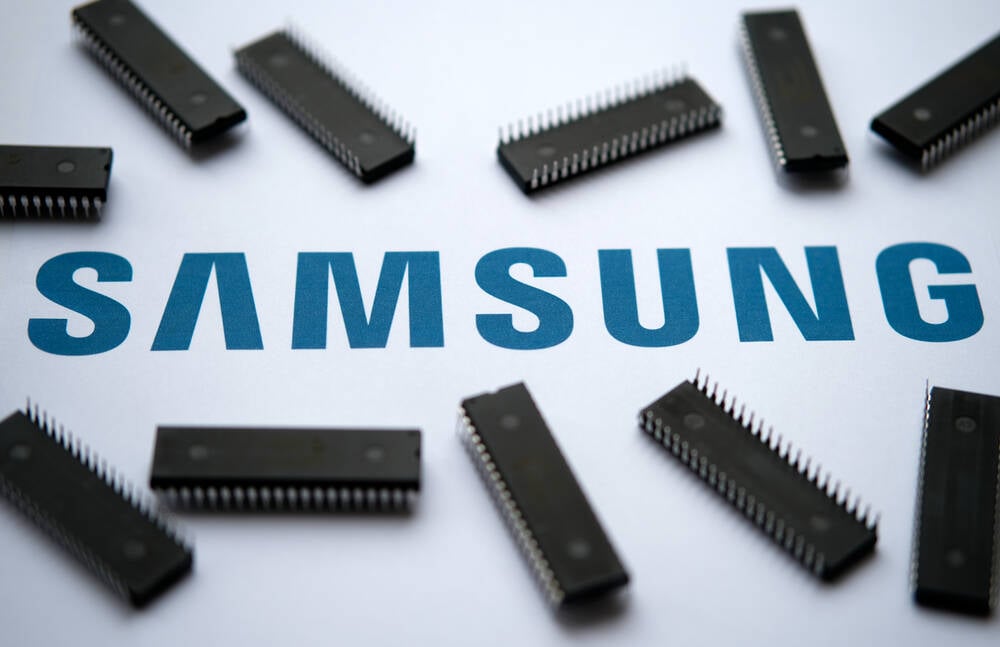Samsung Nabs Contract To Produce 3nm Server Chips For Mystery US Biz

A mystery US company has tapped Samsung to fabricate datacenter chips using its 3nm manufacturing process.
The news, revealed in a report from design solutions partner AD Technology, calls for the development of a 2.5D server part that leverages Samsung's gate-all-around (GAA) transistor design, introduced with its 3nm process tech last year.
AD Technology specializes in the design and implementation of silicon interposers – a form of advanced packaging. They're often used to connect compute dies, like GPUs, with high-bandwidth memory (HBM) over the shortest distance possible. This suggests that the silicon may be used in an AI accelerator or some other bandwidth-constrained application.
"This three-nano project will be one of the largest semiconductor projects in the industry," Joon-gyu Park, CEO of AD Technology, opined. "I think this three-nano and 2.5D design experience will be a big weapon that will differentiate AD Technology from other companies in the future."
For Samsung, the contract win is significant as much of the datacenter silicon that makes use of advanced packaging is fabbed by TSMC. That's not to say Samsung hasn't had successes in the arena – Baidu and Samsung worked on an HBM-equipped AI accelerator for the datacenter a few years back.
Nvidia has also worked with Samsung to produce several of its A-series GPUs, like A16, on an 8nm process node. However, anything that relied on HBM, like Nvidia's A100, was built by TSMC. For its latest Hopper and Ada Lovelace architectures, Nvidia went back to TSMC as its silicon supplier.
- Beijing-backed server chip startup formed by ex-Arm China execs
- US allows Samsung and SK hynix to keep making chips in China
- Samsung to fab chips for RISC-V processor world's Tenstorrent
- Samsung wants to push CAMM format into memory mainstream
Samsung's mystery customer is as yet unidentified. Pulse News Korea has at least narrowed the field to a "US-based company involved in high-performance computing chips."
Nvidia certainly would fit the bill, considering the supply-chain challenges the accelerator-slinger is reportedly facing. Production of its most powerful GPUs has, according to TSMC, been held up by a lack of adequate advanced packaging capacity.
Nvidia has also been rumored to be looking to Samsung – also a major producer of HBM – to address some of these shortcomings.
However, SemiAnalysis founder Dylan Patel told The Register that it's just as likely to be Broadcom, Microsoft, Amazon, AMD, Marvell – or likelier still, one of the many semiconductor startups.
We asked Samsung for comment and we'll let you know if we hear anything back. ®
From Chip War To Cloud War: The Next Frontier In Global Tech Competition
The global chip war, characterized by intense competition among nations and corporations for supremacy in semiconductor ... Read more
The High Stakes Of Tech Regulation: Security Risks And Market Dynamics
The influence of tech giants in the global economy continues to grow, raising crucial questions about how to balance sec... Read more
The Tyranny Of Instagram Interiors: Why It's Time To Break Free From Algorithm-Driven Aesthetics
Instagram has become a dominant force in shaping interior design trends, offering a seemingly endless stream of inspirat... Read more
The Data Crunch In AI: Strategies For Sustainability
Exploring solutions to the imminent exhaustion of internet data for AI training.As the artificial intelligence (AI) indu... Read more
Google Abandons Four-Year Effort To Remove Cookies From Chrome Browser
After four years of dedicated effort, Google has decided to abandon its plan to remove third-party cookies from its Chro... Read more
LinkedIn Embraces AI And Gamification To Drive User Engagement And Revenue
In an effort to tackle slowing revenue growth and enhance user engagement, LinkedIn is turning to artificial intelligenc... Read more

